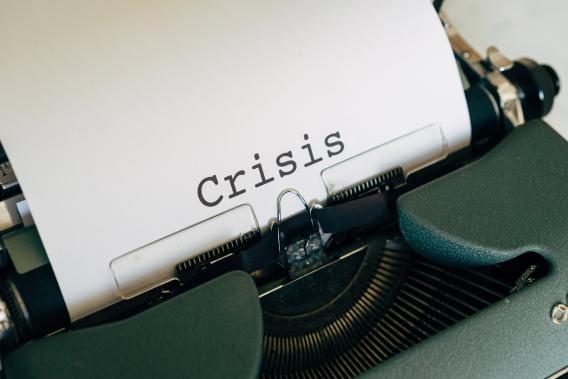
BLOG - crisis communications plans: why your organization should prepare for a crisis
As a crisis communications agency, Charly PR has managed many crises for lots of organizations. And while we are also experts in dealing with unprepared crises, we know from experience that companies with a proactive crisis communications plan are always better off. In this blog, Johan, Corporate Comms Director Benelux and one of the crisis communication veterans in our PR agency, explains why.
1. A crisis can strike any organization (and yours is no exception)
Naturally, some companies are more prone to crises than others. For companies in food (product recalls), industry (work accidents), and petrochemicals (environmental disasters) for example, the increased risk is inherent to their core business.
However, many crises strike in peripheral areas: a big layoffs, compliance breach, cyber-attack, #greenwashing, internal issues (strikes, allegations of misconduct, …). At Charly PR, we have dealt with nearly every scenario, and our client rarely saw it coming.
2. Swift communication is key...
The sooner you take control, the better you can defend your reputation. If you still need to organize yourselves - who will do what? how and what will we communicate? who needs to approve what? - while the clock is ticking, you lose valuable "reputation time".
3. ... and so is the right communication (and yes, you can prepare that)
Strategy is always crucial in communication, but in crisis communications, you cannot afford any mistakes. A key aspect of proper preparation is choosing the appropriate crisis communications strategy for the most likely and impactful crisis scenarios. Based on that, we also prepare statements which you can immediately use when the shit hits the fan.
4. You don't risk overlooking stakeholders
One of the first questions we always ask clients in a crisis, is ‘have you informed your own employees yet’? And not without reason: in the chaos, simply forgetting about them or another key stakeholder is only human. A proactive crisis plan also addresses this, by including a stakeholder mapping: an overview of all your stakeholders and how to effectively involve them in the communication.
5. You take Murphy out of the equation
No matter how prepared you are when it comes to messaging, if you give Murphy's Law too much room, it could all be for nothing. A receptionist who panics and gives media wrong information, a marketing campaign that keeps running while highly inappropriate, .... A crisis communications plan anticipates the most likely problems so you can avoid them when a crisis strikes.
6. You know what they’re saying about you
A crisis can already be raging in the media and on social media before you even realize it. Fortunately, there are tools that provide real-time monitoring of online, print and social media. They immediately alert you about buzz about your organization. Using these tools is often not financially feasible for an individual organization. But as a PR agency, we use them day in and day out for all our clients, so we can help you out.
7. You have an onboarded crisis communications agency on speed dial
If we have helped you with your proactive homework, our crisis communication specialists have all the necessary background to step up when you need them. That way we form the perfect team to tackle any crisis together. Additional advantage: as an external party, we provide advice from a fresh and critical perspective – key to foreseeing every possible risk.
Want to sleep soundly like so many of Charly PR's clients do? Then let us help you with proactive crisis communication plans and (crisis) media training.